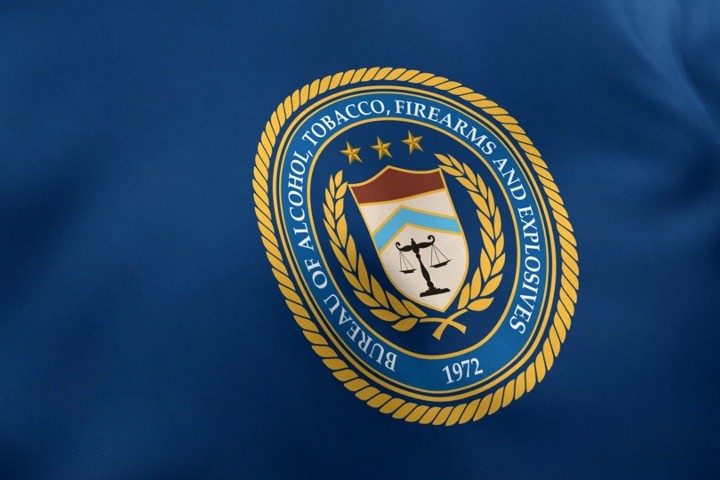
As expected, the ATF’s extraordinary overreach declaring that pistols with braces are now rifles to be registered under the 1934 National Firearms Act (NFA) is being met with outrage and lawsuits across the land.
The ATF — the Bureau of Alcohol, Tobacco, Firearms and Explosives — knew it was coming and wrote the rule anyway. Anti-gun Attorney General Merrick Garland endorsed it, saying that “keeping our communities safe from gun violence is among the [Justice] Department’s highest priorities.”
This despite receiving nearly a quarter of a million negative comments from citizens during the open public-response period prior to the rule becoming effective. This despite a letter from the Senate Republican Caucus telling Garland that the new rule, if he signed it, “would turn millions of law-abiding Americans into criminals overnight, and would constitute the largest Executive branch-imposed gun registration and confiscation scheme in American history.”
Nevertheless, Garland signed the rule change, triggering numerous lawsuits and other forms of resistance.
The first lawsuit to be filed against the ATF came from the Wisconsin Institute for Law & Liberty, Inc. — Britto v. ATF — filed in the U.S. District Court for the Northern District of Texas. It made it clear just how the ATF violated the law:
The Bureau of Alcohol, Tobacco, Firearms and Explosives (“ATF”) has issued a rule reclassifying pistols with stabilizing braces (which are designed and intended to be attached to the user’s forearm) as short-barreled rifles (which are, by contrast, designed and intended to be fired from the shoulder).
ATF made this change without legal authority and despite previously and repeatedly concluding just the opposite….
ATF’s actions are unlawful.
The new rule unlawfully usurps Congressional authority by significantly expanding the definition of “rifle” under federal law and, with it, imposes potential criminal liability on millions of Americans exercising their Second Amendment rights.
Such a dramatic seizure of legislative authority violates not only the Administrative Procedures Act, but the separation of powers … and the “fundamental right” to keep and bear arms.
The second lawsuit to be filed is Mock v. Garland, brought by the Firearms Policy Coalition and also presented to the U.S. District Court for the Northern District of Texas. It not only challenges the ATF for violating the APA — the Administrative Procedures Act — and the Constitution, it also challenges, for the first time in decades, the constitutionality of the National Firearms Act of 1934 itself:
Even if the Final Rule does not violate the APA and is allowed to stand, the Agencies’ National Firearms Act (“NFA”) … laws, regulations, policies, and enforcement practices with respect to “braced pistols” that the Agencies’ [sic] have classified as “short-barreled rifles” violate the Second Amendment.
Right behind these court filings is the assurance by the Arkansas Sheriffs’ Association (ASA) that its members won’t assist federal agents seeking to enforce this unconstitutional abridgement in their state.
In 2021, Arkansas, anticipating the coming tyranny by the ATF and the federal government, passed its nullification law, Act 1012, under which
All acts, laws, orders, rules, and regulations of the United States Government that were enacted on or after January 1, 2021, that infringe on the people’s right to keep and bear arms as guaranteed by the Second Amendment to the United States Constitution and Arkansas Constitution, Article 2, § 5, are invalid in this state, shall not be recognized by this state, are specifically rejected by this state, and shall be considered null and void and of no effect in this state.
Wrote the ASA’s director, Scott Bradley:
We do not support assisting the federal government in any way in the enforcing of this offensive affront to the rights of law-abiding citizens of the State of Arkansas.
Criminals don’t obey the law, and when rules like this are put in place, they seek only to criminalize otherwise law-abiding citizens.
The ATF is going to have some heavy lifting to do to overcome not only these lawsuits and citizens’ and sheriffs’ resistance, but legal precedents as well. There’s Cargill v. Garland, which ruled in a nearly identical case concerning the ATF in which the agency declared that bump stocks turned rifles into machine guns:
The definition of “machinegun” as set forth in the National Firearms Act [1934] and Gun Control Act [1968] does not apply to bump stocks.
And then there’s the Bruen decision — New York State Rifle & Pistol Association, Inc. v. Bruen — in which the Supreme Court ruled:
When the Second Amendment’s plain text covers an individual’s conduct [here the right to bear arms], the Constitution presumptively protects that conduct.
The government [including the ATF] must then justify its regulation by demonstrating that it is consistent with the Nation’s historical tradition of firearm regulation. Only then may a court conclude that the individual’s conduct falls outside the Second Amendment’s “unqualified command.”
Although Cargill took five years to litigate, it is more than likely that one of the courts accepting these lawsuits will issue a temporary restraining order against the ATF while the issue is being heard.
Related article:
Final ATF Rule Turns Pistols Into Rifles to Be Regulated Under National Firearms Act



